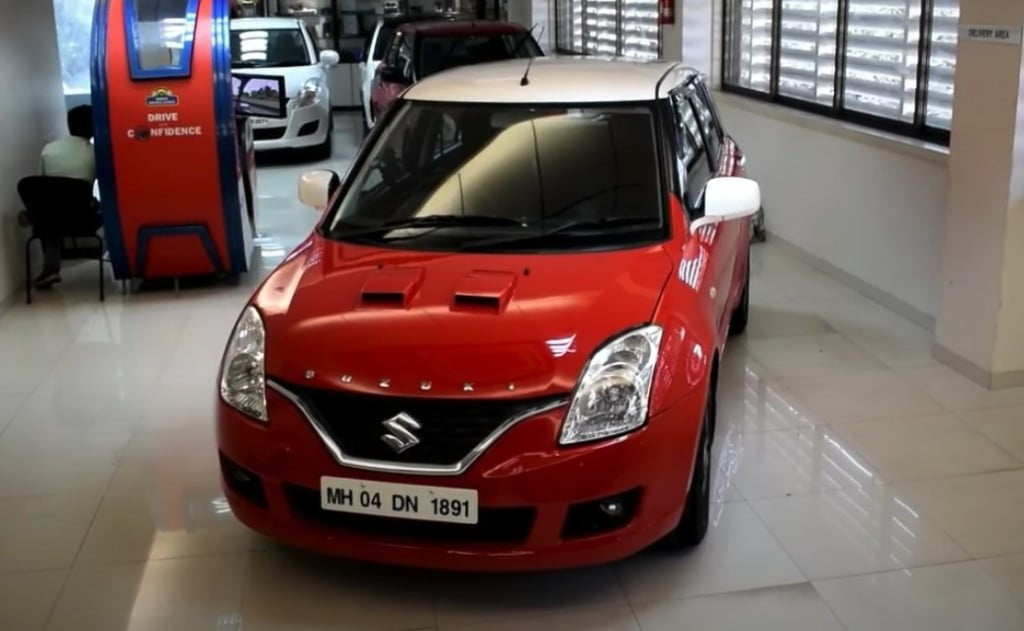Here is a recently modified first-generation Maruti Swift that looks a lot like the Maruti Baleno from the front portion.
The first-generation Maruti Swift is still owned by a lot of people, as it was one of the earliest sporty looking hatchback India got. That too from Maruti Suzuki. Due to its compact dimensions and unique styling, it was also fun to handle and was a peppy car. Here’s what the owner of the old Swift did to his car when it started rusting and was in a really bad shape.
On the front, you can see it gets the grille from Baleno along with the headlights. Just these two changes make it look very similar to the Baleno from the front. The car was completely rusted and had a lot of scratches and dents on it. The owner has completely restored it and now looks completely fine. The bumpers, doors and bonnet all have been restored nicely with new paint and polishing.
Also Read: This 176 BHP Maruti Swift Is As Powerful As A Skoda Octavia 1.8 TSI
Further, it gets faux air scoops on the vent which is just a showpiece and nothing else. The badging on both the sides have been changed. While the original Red colour of the Swift has been retained, it gets white roof, door handles and ORVMs. It does not get alloy wheels but the wheel caps have been blacked out to complete the contrasting look.

Inside the cabin, it gets leather stitching with red inserts, rebolstered seats with new upholstery, a touchscreen infotainment from Pioneer, new centre armrest, wood vinyl near door handles and new JBL speakers. Even from the inside, it gets a complete overhaul which makes it look in a restored condition. The owner has also done repairs to the suspension, braking and other components which were damaged.
The first-generation Maruti Swift came with the same 1.2 Litre four-cylinder petrol engine which produced 83 PS and 115 Nm of peak torque. The third generation last Swift also gets the same engine but a lot of changes have been done. The earlier one also had the option of a 1.3 Litre MJD diesel engine, which has now been discontinued due to the BS6 emission norms.

